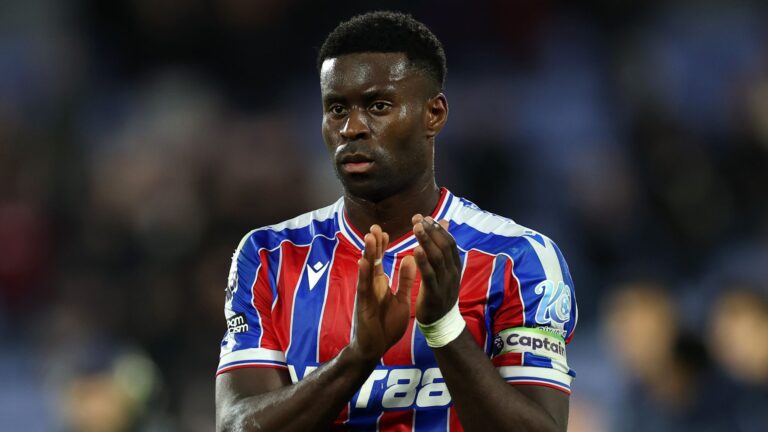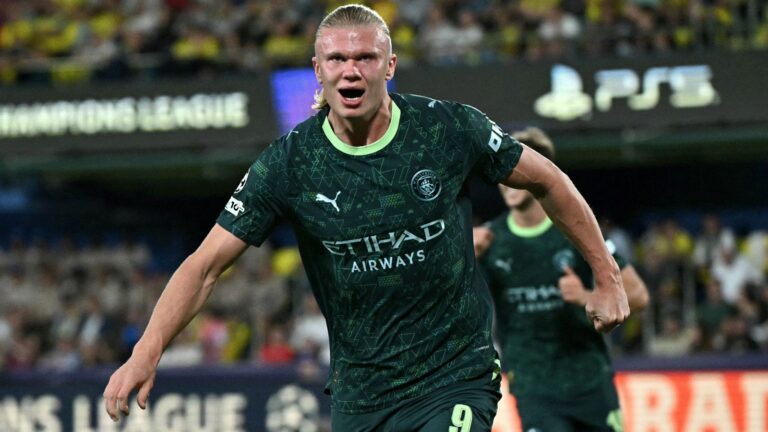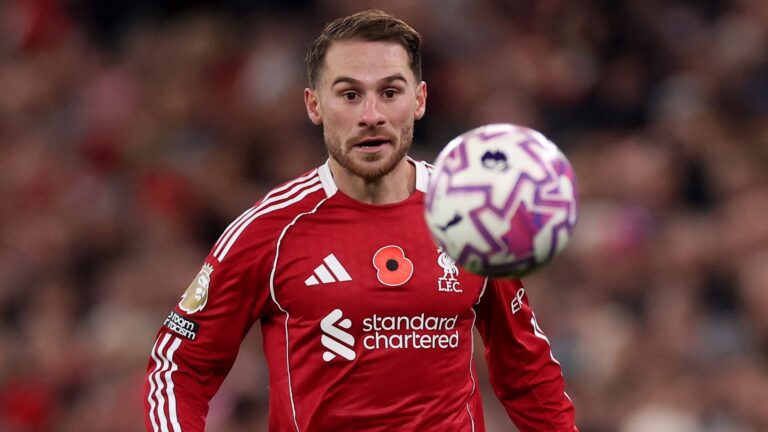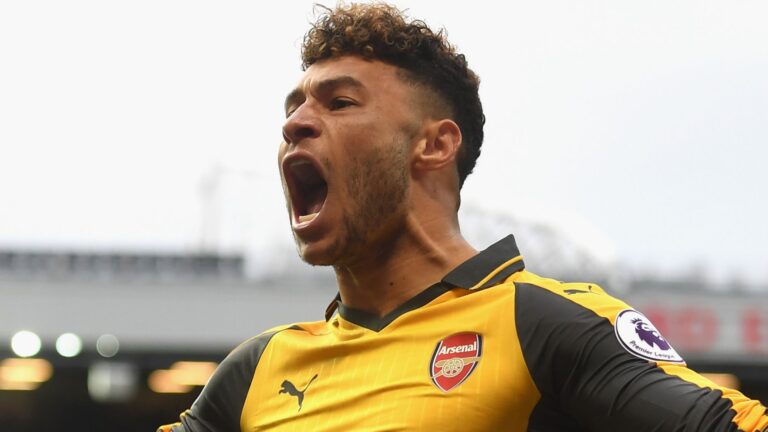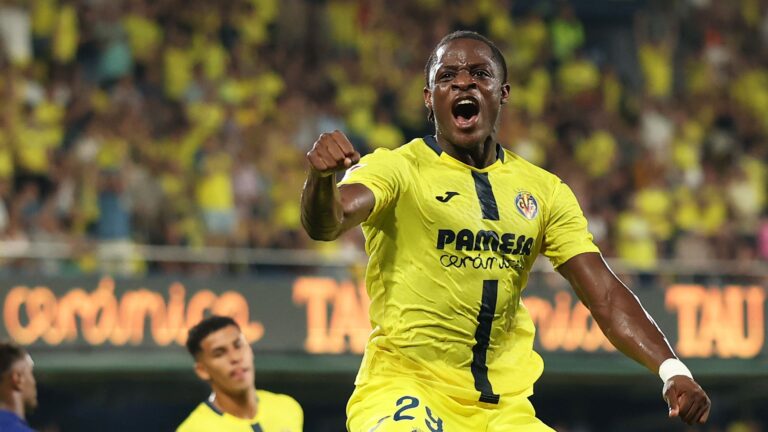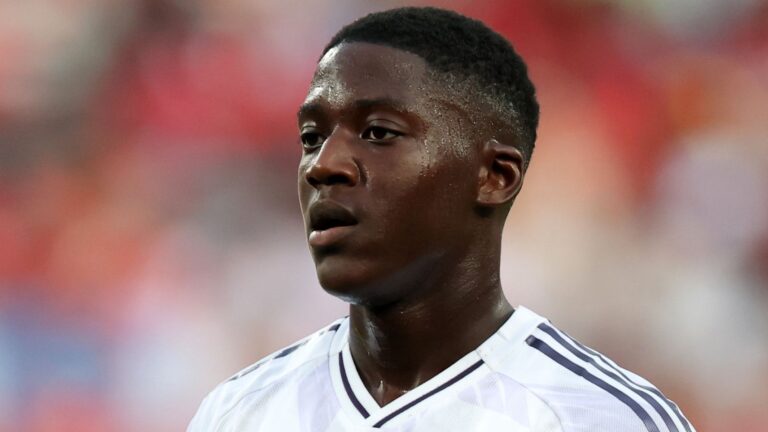The Intense Rivalry in Football Transfers: Manchester United’s Bold Bid for Carlos Baleba
In the high-stakes arena of football acquisitions, Carlos Baleba and Manchester United are at the heart of intense discussions, as Brighton and Hove Albion staunchly defend their valuable players by seeking a hefty fee influenced by market trends and contract details. This ongoing chase captivates enthusiasts and experts, turning it into a riveting story of strategy and ambition.
- Manchester United encounters financial hurdles due to Baleba’s contractual obligations
- Brighton demands an astonishing £115m for their promising youngster
- Lucien Agoume from Sevilla presents a budget-friendly option for midfield positions



How the Sell-On Provision is Boosting Baleba’s Market Value
This specific contract element is posing major obstacles in ongoing negotiations. Brighton has set a firm price of £115 million (€133m/$156m) for their 21-year-old standout, largely due to an underlying arrangement from his earlier transfer. Based on reports from industry insider Fabrizio Romano, a 15 per cent cut of any subsequent deal automatically benefits Lille, Baleba’s previous club, thereby increasing the financial burden for clubs considering a purchase.
Analyzing the Economic Impact on Interested Clubs
Years ago, when Lille parted with Baleba for about £26m ($35m), they incorporated this protective measure. Consequently, should Brighton’s price be met, roughly £17.25m ($23m) would return to Lille, essentially raising the true expense and forcing teams like Manchester United to evaluate a transaction that could otherwise settle at around £87.5m ($118m) absent these cuts. In today’s environment of escalating player costs, Brighton’s determination to collect the full sum highlights their calculated tactics, even with some funds directed elsewhere.
Financial Pressures Shaping Manchester United’s Transfer Strategy
Recent Spending and the Strain of League Financial Policies
Guided by Ruben Amorim during his first transfer window at Old Trafford, the team has invested more than £200m ($269m) to strengthen their roster, adding talents like Matheus Cunha, Bryan Mbeumo, and Benjamin Sesko to enhance their attacking lineup. Yet, this substantial spending has drawn greater attention to the Premier League’s financial standards, such as the Profit and Sustainability Rules. Achieving balance now requires selling players, but these efforts are progressing slowly.
Highlighting Potential Departures in the Squad
Players such as Alejandro Garnacho are attracting offers, with Chelsea showing interest in the emerging Argentine, and Napoli considering a loan for Rasmus Hojlund. These conversations are becoming intricate, and stars like Jadon Sancho and Antony remain without firm proposals, adding complexity to United’s financial strategy. Current updates suggest that comparable situations league-wide are experiencing hold-ups, requiring clubs like United to proceed cautiously to evade sanctions.
Exploring Cost-Effective Choices: The Appeal of Lucien Agoume
Evaluating Prices and Availability
With talks involving Brighton hitting roadblocks, Manchester United is expanding their options for midfield additions. Lucien Agoume, currently at Sevilla, has surfaced as a viable candidate, priced by the Spanish club at approximately €30m (£25.9m/$35m). This amount is notably less than Baleba’s figure and even falls below Agoume’s own €40m (£35m/$47m) buyout option, providing United with a feasible route under their budget limitations. Considering current trends where winter transfers typically fall short of starting prices, Agoume emerges as a wise and economical decision.
Brighton’s Success in Profitable Player Deals
This situation showcases Brighton’s skill in the trading landscape, where they regularly convert small outlays into major gains. Stars such as Moises Caicedo and Alexis Mac Allister have previously yielded high returns, and Baleba seems set to follow suit on an even grander scale. Holding complete authority in these discussions, Brighton won’t likely compromise without the precise £115m, reinforcing their status as leaders in transfer dealings.
The Significance of Contract Terms in Determining Player Worth
In major football deals, contractual terms frequently dictate a player’s price. For example, regarding Brighton’s assessment of Carlos Baleba during Manchester United’s increasing attention, particular conditions in his agreement are likely the main drivers of these talks. These features not only shield teams like Brighton from selling too cheaply but also introduce added challenges to transactions for prospects like Baleba, who has demonstrated considerable skill since his arrival from Lille.
Examining Essential Contract Elements
The terms in football pacts can differ greatly, often featuring buy-out provisions, achievement-related bonuses, or sell-on shares that directly influence a team’s asking price. In Baleba’s scenario, sources indicate there could be a release condition or matching rights that Brighton is using to keep valuations elevated, particularly as Manchester United seeks to fortify their midfield.
A typical provision is the release clause, establishing a set amount for other teams to initiate a move. If Baleba has one, it might establish the boundaries of Brighton’s price, rendering Manchester United’s efforts more foreseeable but still demanding. Likewise, the sell-on clause means Baleba’s original club, Lille, could gain a portion of any later fee, which strengthens Brighton’s position by factoring in these commitments during pricing.
Grasping these aspects aids followers and observers in understanding why Brighton’s estimate for Carlos Baleba sits at around £30-40 million, despite his early career stage. Manchester United’s fascination arises from Baleba’s energetic approach and ability to address team needs, yet any proposal must carefully handle these agreement details to prevent excess costs or unintended triggers.
The Way Contract Terms Affect Deal Discussions
Within football transactions, these terms go beyond finances and can alter the full negotiation dynamic. For Brighton, maintaining a strong stance on Baleba’s price against Manchester United’s pursuit illustrates how such elements serve as a defense against opportunistic bids. If Manchester United attempts a reduced offer, Brighton might activate terms that prolong Baleba’s contract or add stipulations that deter the agreement.
Elements like the demand for young midfielders, Baleba’s on-field records, and Premier League fiscal rules all contribute. For instance, Brighton’s pricing may be enhanced by terms that compensate for talent development, akin to their management of Caicedo sales. This method helps clubs like Brighton stay competitive in transfers while optimizing their earnings.
Advantages of Clever Contract Terms in Player Moves
Employing contract terms strategically provides multiple perks for teams, athletes, and pursuers like Manchester United. Key advantages include:
- Financial Safeguard: Terms enable clubs like Brighton to establish baseline prices, blocking undervalued offers and guaranteeing profits from nurturing players. For Baleba, this might result in additional millions in the deal.
- Athlete Retention: For players like Baleba, provisions can incorporate incentives for performance or loyalty, promoting sustained dedication and minimizing disruptions from transfer speculation.
- Bargaining Power: Clubs gain an advantage in negotiations; Brighton could use terms to request extras based on games played or titles won, enhancing deals for Manchester United while upholding high prices.
- Future Earnings: Sell-on terms ensure ongoing revenue, as demonstrated in earlier transactions, allowing teams to fund squad improvements without instant financial pressure.
These perks explain the importance of contract terms in contemporary football, especially for clubs of Brighton’s caliber facing advances from powerhouses like Manchester United.
Helpful Advice for Decoding Football Prices and Terms
For football aficionados or experts deciphering transfers like Baleba’s, consider these useful suggestions:
- Investigate Player Agreements: Review trustworthy sources for term details. With Baleba, examine transfer updates from platforms like Sky Sports or The Athletic to see how Brighton’s pricing is formed.
- Track Industry Patterns: Watch deals involving similar players to assess how terms impact total costs. This aids in forecasting results for Manchester United’s efforts.
- Account for Outside Influences: Aspects such as past injuries, global performances, and Premier League economic factors can affect term interpretations, so include them in your evaluation.
- Leverage Data Resources: Tools and sites that monitor player statistics and rumors offer valuable insights into why valuations like Baleba’s withstand offers.
Implementing these suggestions can deepen your understanding of contract terms and their effects on prices, making transfer stories even more compelling.
Examples from Similar Transfer Situations
Real-life instances can clarify how contract terms have influenced other notable deals, drawing connections to Brighton’s approach with Carlos Baleba. Consider Erling Haaland’s transition from Borussia Dortmund to Manchester City, where a release term permitted City to acquire him at a fixed rate, despite Dortmund’s attempts to demand more. This demonstrates how terms can speed up or hinder processes, similar to Baleba’s case.
Additionally, Liverpool’s transfer of Dominic Solanke to Bournemouth included a sell-on term that delivered Liverpool a large payout when Solanke moved on, showing how Brighton could profit later from a Baleba deal. Conversely, Manchester United’s dealings with Paul Pogba featured intricate terms that complicated his return, emphasizing the dangers of extended negotiations.
These examples stress the role of contract terms in upholding equitable prices and tactical advantages, particularly when major teams like Manchester United get involved.
Insights from Transfer Professionals
Gathering perspectives from football specialists, like agents and past officials, reveals that the details of terms in contracts such as Baleba’s often hinge on planning and bargaining expertise. An anonymous agent pointed out that “teams like Brighton employ terms as a barrier to keep young players from being undersold, compelling buyers like Manchester United to adhere to their conditions.” This viewpoint highlights how these factors can shift the balance in negotiations, ensuring rising talents like Baleba receive appropriate compensation.
Understanding Carlos Baleba’s Contract and Its Impact on Brighton
Who is Carlos Baleba and Why He’s in Demand?
Carlos Baleba, the young Cameroonian midfielder, has quickly become one of the most talked-about talents in the Premier League. Since joining Brighton & Hove Albion in the summer of 2023, Baleba has showcased his exceptional passing range, defensive tenacity, and ability to control the midfield. His meteoric rise has caught the eye of top clubs, including Manchester United, who see him as a key piece in their midfield rebuild.
Baleba’s journey from Lille OSC in France to Brighton was marked by high expectations, and he hasn’t disappointed. In the 2023-2024 season alone, he contributed to several key wins for Brighton, demonstrating his versatility in both attacking and defensive roles. For fans and analysts alike, keywords like “Carlos Baleba transfer news” and “Brighton rising stars” are frequently searched as his profile continues to grow.
- Key stats highlighting Baleba’s potential: Over his first full season, Baleba recorded an impressive 85% pass accuracy, won 60% of his tackles, and created numerous scoring opportunities, making him a hot prospect in the transfer market.
- Why Manchester United is interested: The Red Devils are looking to bolster their squad under their new manager, with Baleba fitting perfectly into their strategy for a dynamic, youthful midfield. Searches for “Manchester United midfield targets” often include his name alongside other prospects.
The Role of Contract Clauses in Football Transfers
In the world of football transfers, contract clauses can make or break a deal. These legal provisions, often negotiated at the time of signing, dictate how a player’s value is assessed and can influence negotiations dramatically. For Carlos Baleba, a specific clause in his Brighton contract has become a focal point amid growing interest from bigger clubs.
One common type of clause is the release clause, which sets a predetermined fee that clubs must pay to secure the player. In Baleba’s case, reports suggest there’s a clause tied to performance metrics or time-based triggers, which could allow Brighton to demand a higher valuation if certain conditions are met. This isn’t unusual in the Premier League, where keywords like “football contract clauses explained” help fans understand these intricacies.
- Types of clauses affecting valuations:
- Buy-out clauses: These set a fixed price, but Baleba’s might include escalators based on appearances or achievements.
- Sell-on clauses: If Brighton sells him, a percentage might go to his former club, indirectly inflating Brighton’s asking price.
- Performance-based adjustments: Baleba’s clause could tie his value to milestones, such as international caps or league performances, ensuring Brighton maximizes returns.
Breaking Down the Pivotal Clause in Baleba’s Deal
At the heart of Brighton’s firm stance on Baleba’s valuation is a strategic clause inserted during his transfer from Lille. This clause, believed to be a hybrid of a release and performance-based agreement, allows Brighton to adjust the transfer fee based on Baleba’s on-field contributions and market conditions. For instance, if Baleba reaches a certain number of starts or helps Brighton qualify for European competitions, his valuation could increase significantly.
Manchester United’s interest has intensified this debate, as they’ve reportedly tabled offers around £30 million, but Brighton is holding out for closer to £50 million, partly due to this clause. Experts in transfer negotiations point out that such clauses protect clubs like Brighton from being undervalued, especially for promising talents. In searches related to “Carlos Baleba contract details,” fans often discuss how this clause gives Brighton leverage in a competitive market.
- How the clause works in practice:
- If Baleba plays in 50% of Brighton’s matches in a season, the base fee could rise by 20-30%.
- It might include anti-tampering measures, preventing premature bids and forcing clubs like Manchester United to negotiate fairly.
- Comparative examples: Similar clauses have been used in deals like Moises Caicedo’s transfer, where Brighton secured a massive profit.
Implications for Brighton’s Valuation Strategy
Brighton’s valuation of Baleba isn’t just about his current form; it’s a calculated move shaped by the contract clause to ensure long-term financial stability. By incorporating such provisions, Brighton positions itself as a savvy seller in the Premier League, where clubs often scout for “undervalued talents like Carlos Baleba.” This approach has helped Brighton build a reputation for smart dealings, turning players into profitable assets.
From a broader perspective, this clause influences how other clubs approach transfers. Manchester United must weigh the cost against their budget, potentially affecting their squad planning for the upcoming season. Keywords like “Brighton transfer valuation tactics” reveal how the club uses contracts to stay competitive without the financial might of giants like United.
- Potential outcomes for Baleba’s future:
- A successful negotiation could see Baleba move in the next transfer window, with Brighton pocketing a windfall.
- If no deal is reached, the clause might extend Baleba’s stay, allowing him to develop further and increase his market value.
- Fan perspectives: Many Brighton supporters view this as a win-win, securing the club’s future while giving Baleba a platform to shine.
The Bigger Picture: Transfer Market Dynamics
In the ever-evolving transfer market, clauses like the one in Baleba’s contract highlight the power imbalance between mid-table clubs and giants. For Brighton, maintaining a high valuation amidst “Manchester United interest in midfielders” is crucial for sustainability. This strategy not only boosts their bargaining power but also attracts more talent, knowing the club can offer protective contracts.
Analyzing past transfers, such as those of Yves Bissouma or Ben White, shows Brighton’s pattern of using clever clauses to maximize returns. For keywords like “Premier League contract strategies,” this case serves as a prime example of how smaller clubs can compete.
- Key lessons for the industry:
- Clubs should prioritize detailed contract negotiations to safeguard investments.
- Players like Baleba benefit from such clauses, as they ensure fair compensation and career growth.
- The ripple effect: This could influence future deals, with more teams incorporating similar provisions to counter aggressive bidding.


